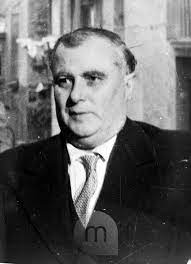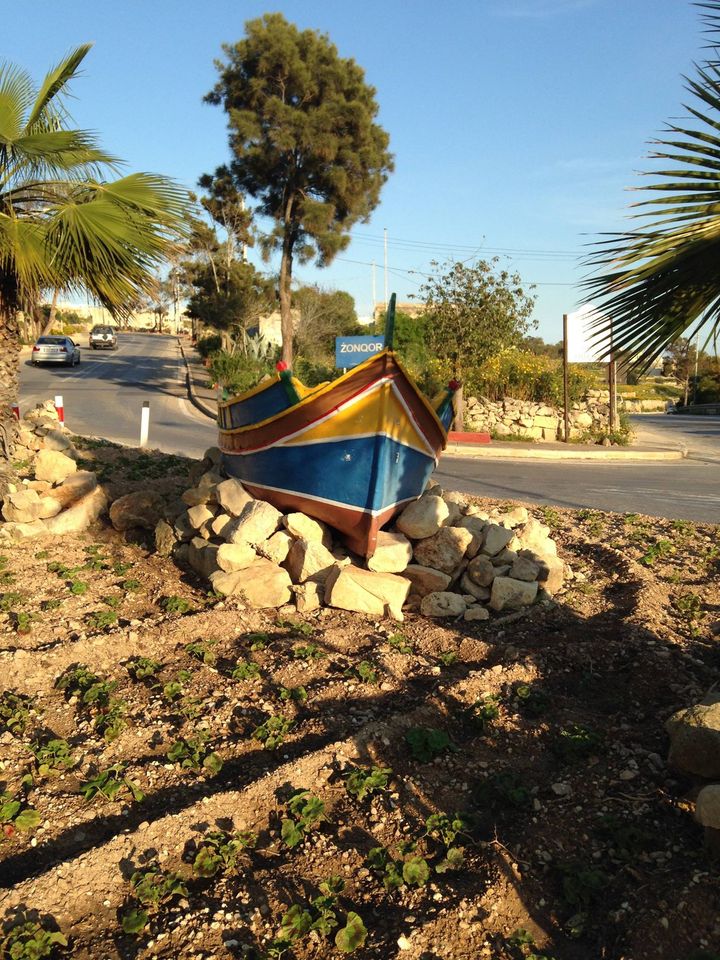(originally posted in Facebook, 25th June, 2023)
Before the war Dr. Ganado (1906-1979) was president of the Catholic Action and editor of its newspaper Lehen is-Sewwa. In 1939 he was interned by the British because of my pro-Italian sympathies and later exiled to Uganda.
In the sixties he left the Nationalist Party and founded the Democratic Nationalist Party (DNP), It obtained four seats in a Parliament of 50. ‘In 1966 the Church panicked and advised to vote Nationalist in order to keep Labour in the opposition. So we lost all seats and I withdrew from politics.’
Our first meeting was supposed to take place at the Casino Maltese at 5th May 1973. However, I was not aware that the Casino Maltese was enforcing a strict dress code and I was refused to enter because I was dressed rather informally without a tie and walking on sandals. Dr. Ganado was so sorry. He apologized to me for not informing me before about this and took me to a neighbouring terrace. I think it was Eddie’s Café Regina. Later I got another chance and Dr. Ganado took me, properly dressed for the occasion, finally into the ‘sacred’ Casino Maltese. (During my recent visit to Malta, last April, I went there again, being invited for a wedding reception).

Onderschrift
In his younger years Dr. Ganado had experienced the bishopric of mgr. Caruana, the predecessor of Mgr. Gonzi, who played an important part in the Strickland affair. I was very curious to learn more about this very interesting prelate.
Dr. Ganado was very generous to me. Not only did he grant me several interviews, but he also donated me his books ‘Rajt Malta Tinbidel’. I found them very valuable for my studies. He invited Margreet and me a few times to visit his beautiful home in Floriana.
I found some interesting quotes from this first and later interviews in my research notes.
‘The only thing we have in common with the Arabs is the language.
The British as individuals are nice. The British colonial system is bad.
The Holy See often blundered with respect to Malta. Mgr Casaroli (1914-1998, a highly skilled Vatican diplomat, created Cardinal in 1979; AK) is looking for compromise all over the world. Perhaps this is necessary in countries where the church is a minority. But in Malta we have a majority church, which is rather orthodox. Here there is no need for compromise as in the Eastern bloc, where they have to be glad with everything they obtain in the negotiations.
Bishop Gerada blundered with the Bical Bank, he was too greedy for the 8% interest.
Gonzi used to be uncompromising, now he changed, but so has the Vatican. He would not immediately be backed by them. But if he should really start a fight the Vatican would be forced to back him
Strickland was a good Catholic, but, in his opinion a good Catholic could be anticlerical, which is nonsense. He was an imperialist, a despot and tactless. But he had initiative. He was a kind of Mintoff type, but Mintoff is no imperialist and perhaps more progressive than Strickland. But both were more progressive than this conservative country. Both were educated abroad and they are our only politicians with a foreign policy.
Mizzi was pro-Italian qua language and tradition, liberal, not a fascist. But his link with Italy belonged to the past and that made him a conservative here. For the rest his ideas were quite progressive. Mizzi had some admiration for Mintoff as he quarrelled with Britain. But Mizzi was a man who lived in the past. Tradition was important for him. For Mintoff the past does not count. For his supporters the history of Malta starts with his first government in 1955.’
NOTE: Labour politician Miss Agatha Barbara held the same view as she told me some years later when she received me at the Palace as the first Maltese female President of the Republic.
‘When Mizzi died Mintoff held a sentimental speech in Parliament, his only one.
Manwel Demech (1860-1921) was a forgotten man. Henry Frendo made him alive. Demech was against all authority. He wanted a republic and founded unions. In his time the Church was strict and he was condemned. He had advanced ideas for his time and undermined the establishment.
The 7th June riots of 1919 were caused by many groups, some of them were Demechjani and other Dockyard people. Others were Nationalists who wanted a better Constitution, students and people angry against the wages and prices etcetera.
Demech was the first to fight the Church. Even Mintoff uses some of his phraseology. The Malta Labour Party started as a Catholic party. Now they want to reaffirm their identity by referring to Demech.
Bishop Dom Maurus Caruana (Floriana 1867-1943) was a man of character. His father was in the navy and he was educated by the British Jesuits. He was a Benedictine and Abbot of a Scottish monastery. There the Catholics were a minority. This made him an uncompromising man. As a Bishop elect he drove a motorcycle. He was a good preacher and pro-British. At first he was not popular with the clergy and the monsignors who wanted the bishopric for themselves. They were all Nationalists and he was not. The conservative clergy did not cooperate with him. He was a reformer. He reformed the Church music as he was a lover of good music. The people did not like it, but he was right.
A pontifical high mass presided by Bishop Caruana was more dignified than in the Vatican. Gonzi tries to imitate him.
First Caruana was pro-Strickland, but when Strickland interfered with the Church and a monastery (I suppose Dr. Ganado referred to the Father Carta case; AK) the Benedictine Bishop became angry. When the Church was in danger he was uncompromising. When it came to a fight he fought.
Gonzi was not Strickland’s main opponent, Caruana was.
Bishop Gonzi of Gozo was very unpopular with the British government. When Archbishop Caruana was invited for a government dinner at the palace and could not attend Gonzi replaced him. He was not given the traditional second place for the Archbishop, which was given to the Anglican Bishop of Gibraltar. Gonzi refused to come. His absence was reported by Deputy Governor Sir Harry Luke to the Vatican (but not the reason).
With Governor Lord Gort the British attitude changed towards Gonzi. He realized that without this man we would have starved. Gort persuaded King George VI to give his permission for Gonzi’s nomination as Caruana’s Coadjutor. Caruana was glad as he had asked for this before, but then the British refused. Now Gort ordered Mabel Strickland to support him in the Times of Malta.
In 1942/43 Mabel wrote an editorial in the TOM about the integration of Malta with the United Kingdom. Cardinal Godfrey (in those days apostolic delegate for England, Wales and Malta; AK) talked it out of her head. It might stimulate Protestantism in Malta. So she turned against it when Mintoff took over the idea. That was very brave of her.
Dom Mintoff is a left-wing socialist, but not a communist. He thinks ‘to big’ and commits blackmail when it comes to him. He is against NATO as I wrote in the London Times in 1969 or 1970. He is unpredictable, his ideas are extremely socialistic. He gets close to China and North Korea. He has no religion and never attends important church ceremonies in function. Even the ambassadors of Libya and Israel do! The mobs are his force, that scares people. The English expected a revolt when they left, but the population was afraid.
Integration would have given Mintoff a platform in the House of Commons. Now he wants money and wants the whole Mediterranean as his platform.’
During our last meeting, at his home, Dr. Ganado started explaining to me how much he, who had suffered much by the British, was mourning their final departure from Malta, which would soon take place. Our intriguing conversation was interrupted, however, by the unexpected arrival of a noisy male relative of him (Albert or Walter, I don’t remember) who immediately started dominating the meeting completely. I am still angry at this man, even more so as I did not get another chance. Herbert Ganado, a true empathic gentleman, would die soon after what became my last visit to him.
I cherish his memory.
